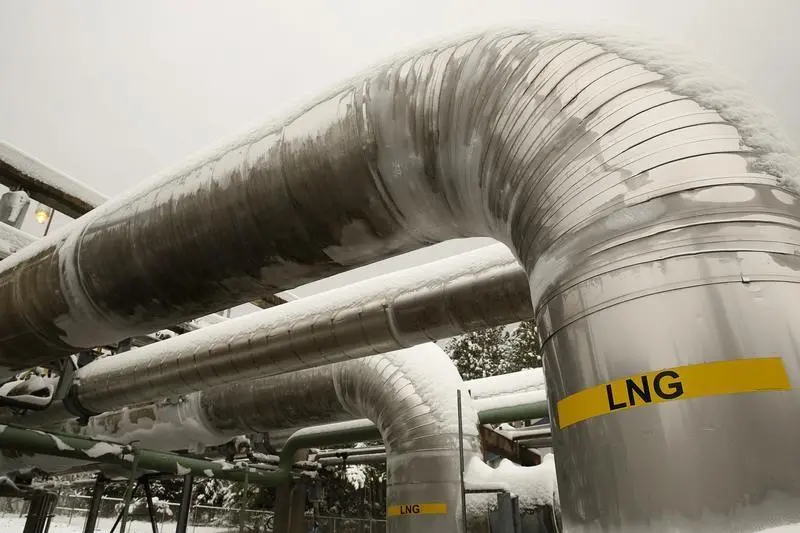PHOTO
BEIRUT: Energy and Water Minister Nada Boustani opened the tender offers from the firms interested in taking part in the construction of LNG terminals and import of gas to run the countrys power plants. The minister did not disclose the name of the companies that won the contracts, but sources said that Boustani is expected to make this announcement within two weeks.
A source, who spoke on condition of anonymity, told The Daily Star that once the project is completed, Lebanon can save up to $200 million a year at least if two of the power plants started running on gas instead of gas oil and fuel oil.
Furthermore, gas is more environmentally friendly.
Before the outbreak of civil war in Syria eight years ago, Egypt supplied gas to Lebanon to run the Deir Ammar power plant in the north.
The government is keen to cut the cost of financing the electricity sector over the next five years. The bulk of the electricity deficit goes to cover the cost of gas oil and fuel oil.
Six of eight entities qualified in the second licensing round on Nov. 21.
Some of the bidding companies formed consortiums to improve their chances of winning the contracts to build the LNG terminals.
Seven consortiums and one company took part in the first licensing round. The ones that moved to the second round were the standalone Gas Natural Fenosa; a consortium that includes Best on Water, Vitol, Butec, Almabani and Rosneft; another consortium that includes Excelerate, Shell and BB Energy; a fourth that joins ENI with Qatar Petroleum Int LTD.; another joining Total with ZR Energy; and the last consortium formed by Petronas and Unigaz
In the second round on May 15, 2018, the ministry disqualified the Golar Power Ltd., CCC S.A.L. and the Phoenicia energy consortium.
The idea to invite local and international companies to bid for the Liquefied Natural Gas Import Terminals Project in Lebanon started earlier in 2002.
But the government at that time did not take any action to build the terminals despite the fact that gas could cut electricity bills by at least $200 million a year.
At present, only the Zahrani and Beddawi power plants can run on gas, while the remaining stations only run on more expensive fuel and gas oil.
Had the LNG project been adopted since it was first discussed by the government [Energy and Water Ministry], and that was back in 2002, Lebanon could have saved up to $2.55 billion over the past 17 years, one expert said.
The Energy Ministry planned to develop an integrated LNG import supply chain to provide natural gas to current and future power plants in Lebanon. The goal was to secure the development of offshore LNG imports at the three sites (Zahrani, Beddawi and Selaata) through selected bidders.
The electricity deficit is one of the most challenging issues facing the government of Prime Minister Saad Hariri. Electricite du Libans deficit ranges between $1.5 billion and $2 billion a year, depending on the fluctuations of oil prices in the international markets.
The company or companies that win the contracts will also be responsible for importing LNG from abroad and building storage facilities to receive the gas.
Its not yet clear how long it will take the companies to complete the LNG projects.
But experts agree that gas is one of the best alternatives for cheaper and more friendly sources of energy in Lebanon. The energy minister may have asked for the extension of the deadline because she is very busy dealing with the electricity plan that was approve by the Cabinet, another source said.
Copyright 2019, The Daily Star. All rights reserved. Provided by SyndiGate Media Inc. (Syndigate.info).





















